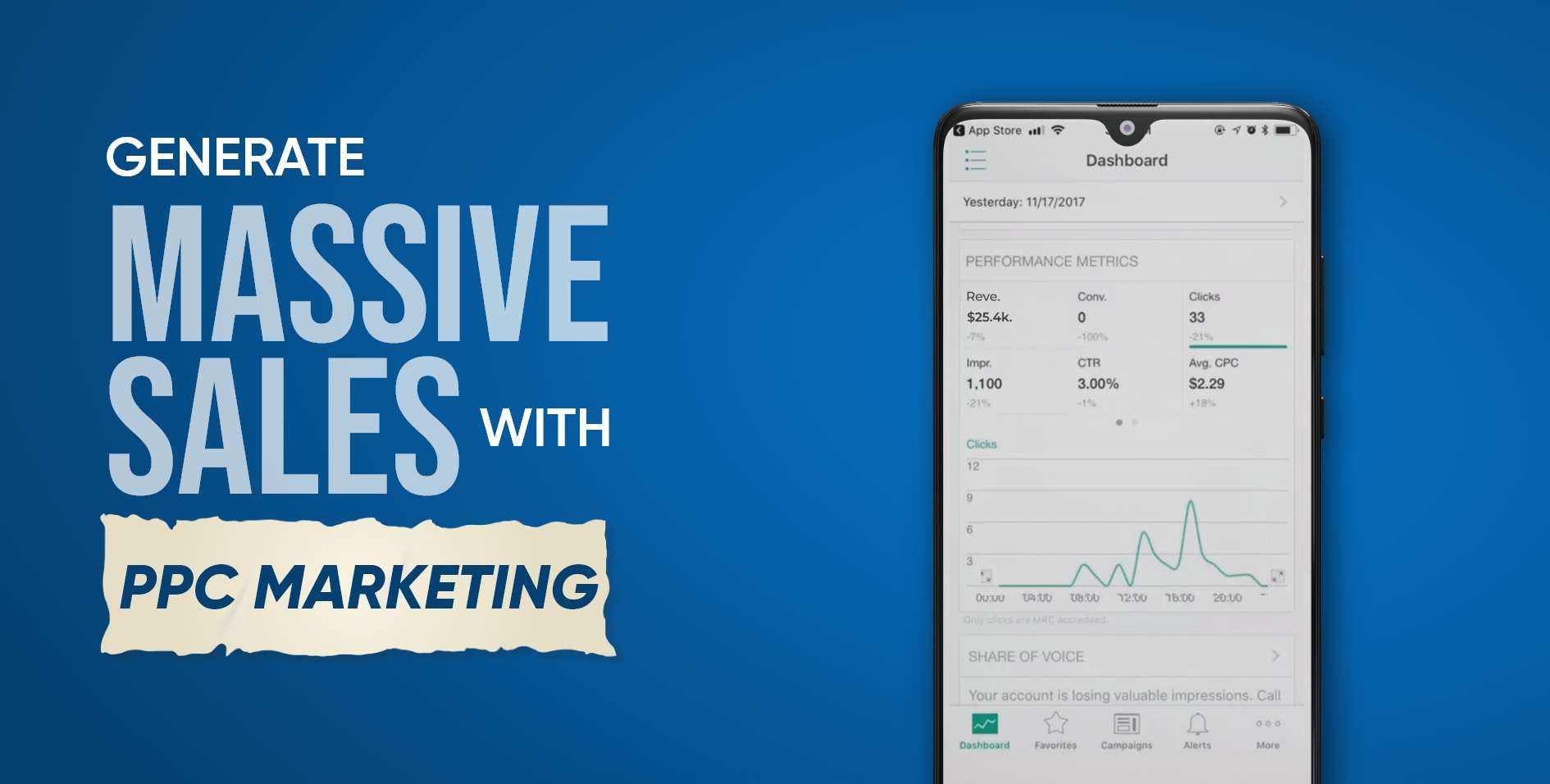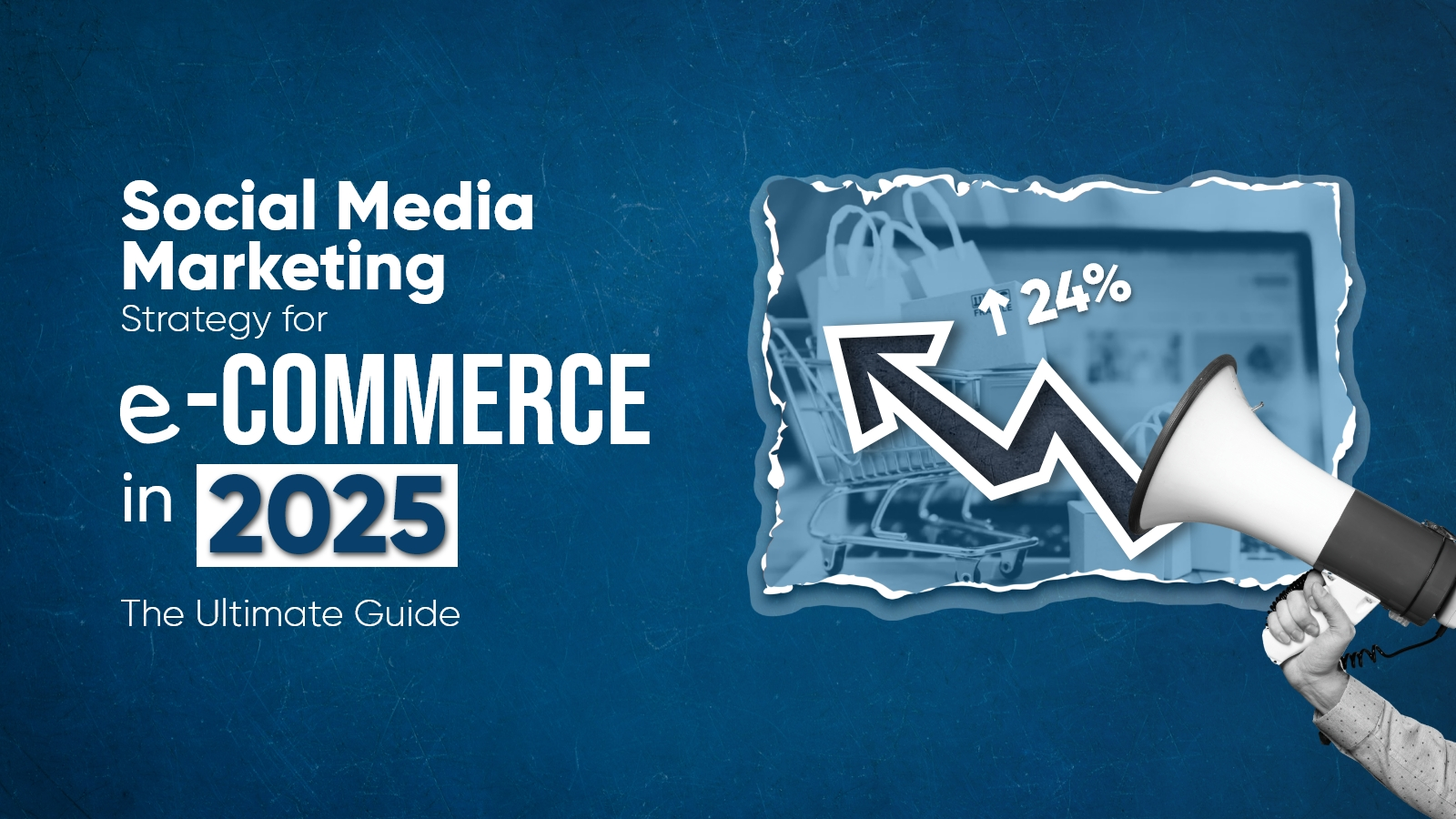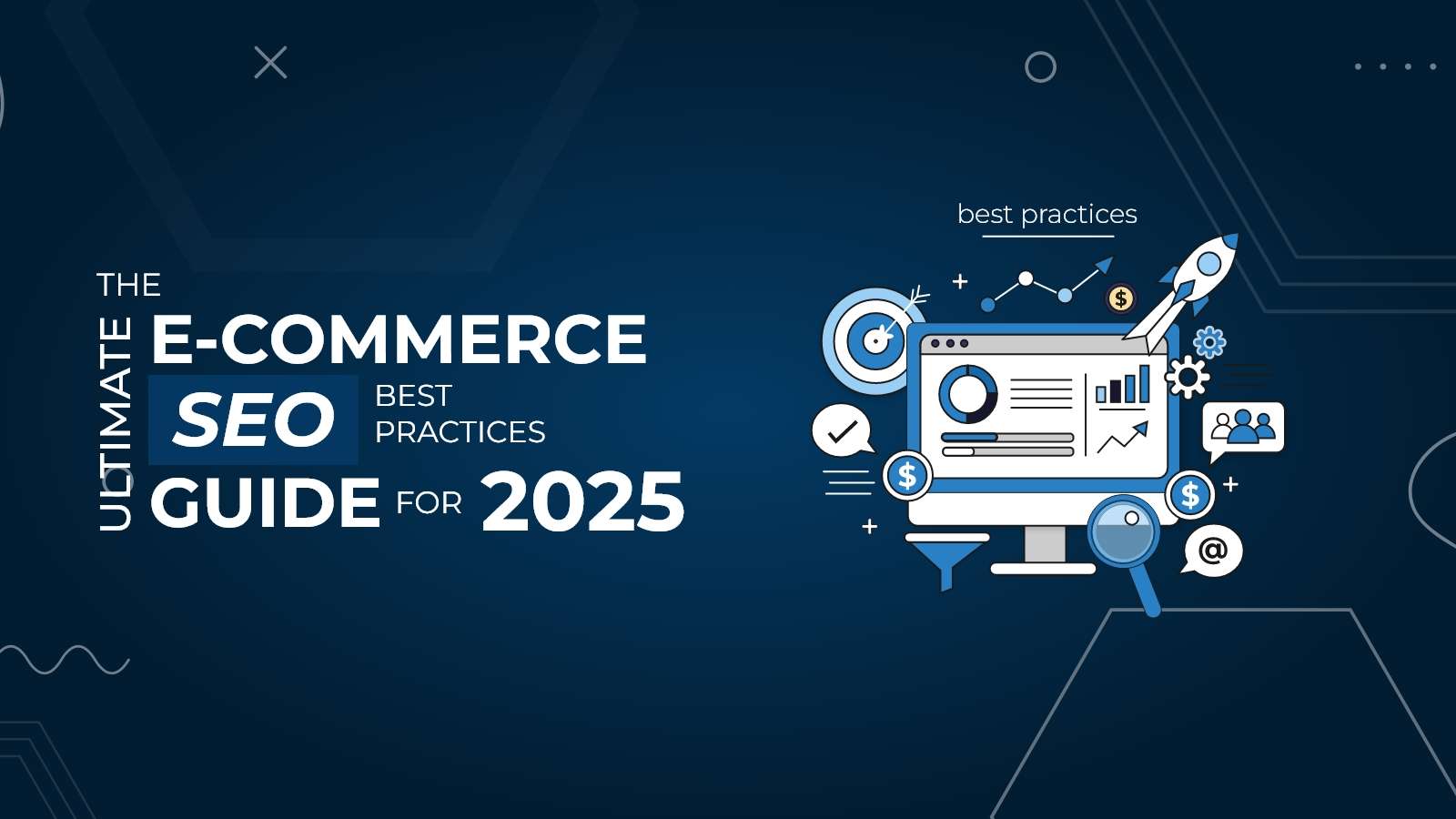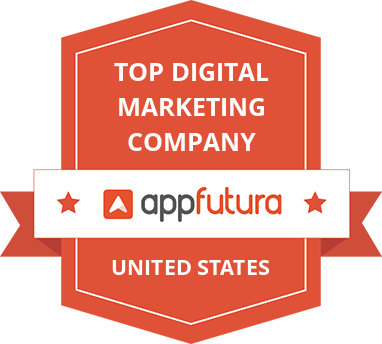Table of Contents
Does PPC Marketing work for small businesses in 2024?
PPC Marketing or pay-per-click for small businesses is a powerful tool. That increases brand awareness, engages users, and generates massive sales. It is an online advertisement method in which the marketers pay the host a specific amount against every click.
In addition, it offers a great opportunity for every small medium, and large size business to compete against each other and increase conversions. Although smaller agencies lack a huge budget for the ads, they can build specific strategies to target audiences and convert them.
This article will uncover interesting details about PPC marketing, pay-per-click for small businesses, pay-per-click optimization, and PPC for b2b.
What is PPC Marketing?
PPC marketing or PPC advertisement is a cost-effective method for agencies to grab more audiences, and boost sales. However, you must have the knowledge and expertise to run a PPC campaign. This way you can earn an average of $2 for every $1 spent on the ads.
Besides being a budget-friendly method, PPC marketing offers tons of advantages.
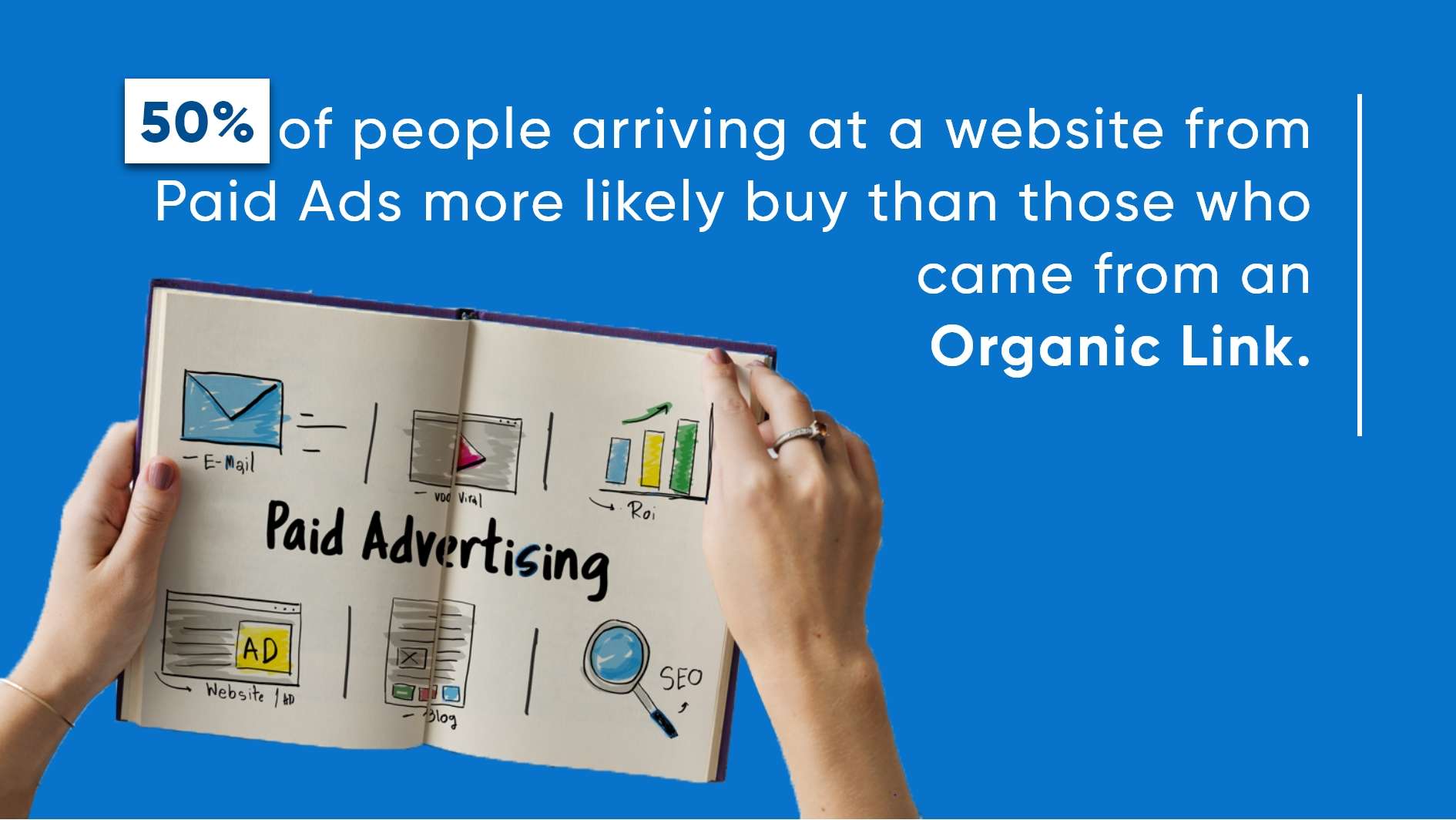
Benefits of PPC marketing for small business
Small businesses often remain short of unlimited funding. Therefore, they constantly look for budget-friendly marketing options to boost their sales figures.
Cost-Effective Advertising
PPC marketing is a widely accepted advertisement strategy because of its friendly features. For instance, you only have to pay Google when someone clicks on your ad. In addition, you can also set limits on the campaign and make necessary adjustments when required.
In addition, you have PPC analytics to track the entire ad campaign performance. Through analytics, you can check the conversion rates and measure the overall progress of the PPC. Therefore, experts suggest PPC for small businesses as a perfect sales-driving tool.
Immediate Results
Another key benefit of PPC is getting instant website traffic. Even small business PPC agency receives immediate results after setting up a pay-per-click campaign. Although organic marketing efforts are essential to boost a brand’s visibility. However, they require months to drive fruitful results for you.
In the meantime, your competitors may see the window of opportunity and leave you behind. That is why PPC in digital marketing has a huge role in success.
Do you know One-third of people (33%) click on a paid search ad because it directly answers their search query?
Targeted Advertising
PPC advertising or PPC web marketing along with analytics, lets you see the audience behavior with your website. Through analytics, you can see how people interact with your marketing campaigns—this way you know those specific individuals who landed on your website and didn’t buy.
This practice helps you target advertising where you only target those interested in buying your products/services. That is why established businesses often seek help from a small business PPC agency that can look after their campaigns and drive results.
Best PPC Marketing Measurable ROI
Every small and established business aims to generate huge ROI from their customers. PPC web marketing serves as a great option for these, In addition, it helps you measure the ad spent and overall revenue as well. Contrary to other types of advertising options, PPC enables you to track everything including your profits.
However, pay-per-click optimization is essential for successful campaign results. PPC optimization refers to improving your ad campaign progress through various tactics and driving fruitful results.
Brand Awareness
PPC (Pay-Per-Click) advertising boosts brand awareness by displaying ads in search engine results. This visibility increases clicks and impressions, ensuring more people recognize your brand. It ultimately enhances its market presence and customer engagement.
Getting Started with PPC for Small Businesses
Running successful PPC campaigns requires a precise approach and strategic thinking. You can’t run a winning campaign without relevant expertise. That is why some brands seek assistance from a small business PPC agency that looks after PPC management for small businesses.
However, if you want to save your hard-earned money by doing it yourself. We have brought some useful tips to help you run a well-executed ad campaign.
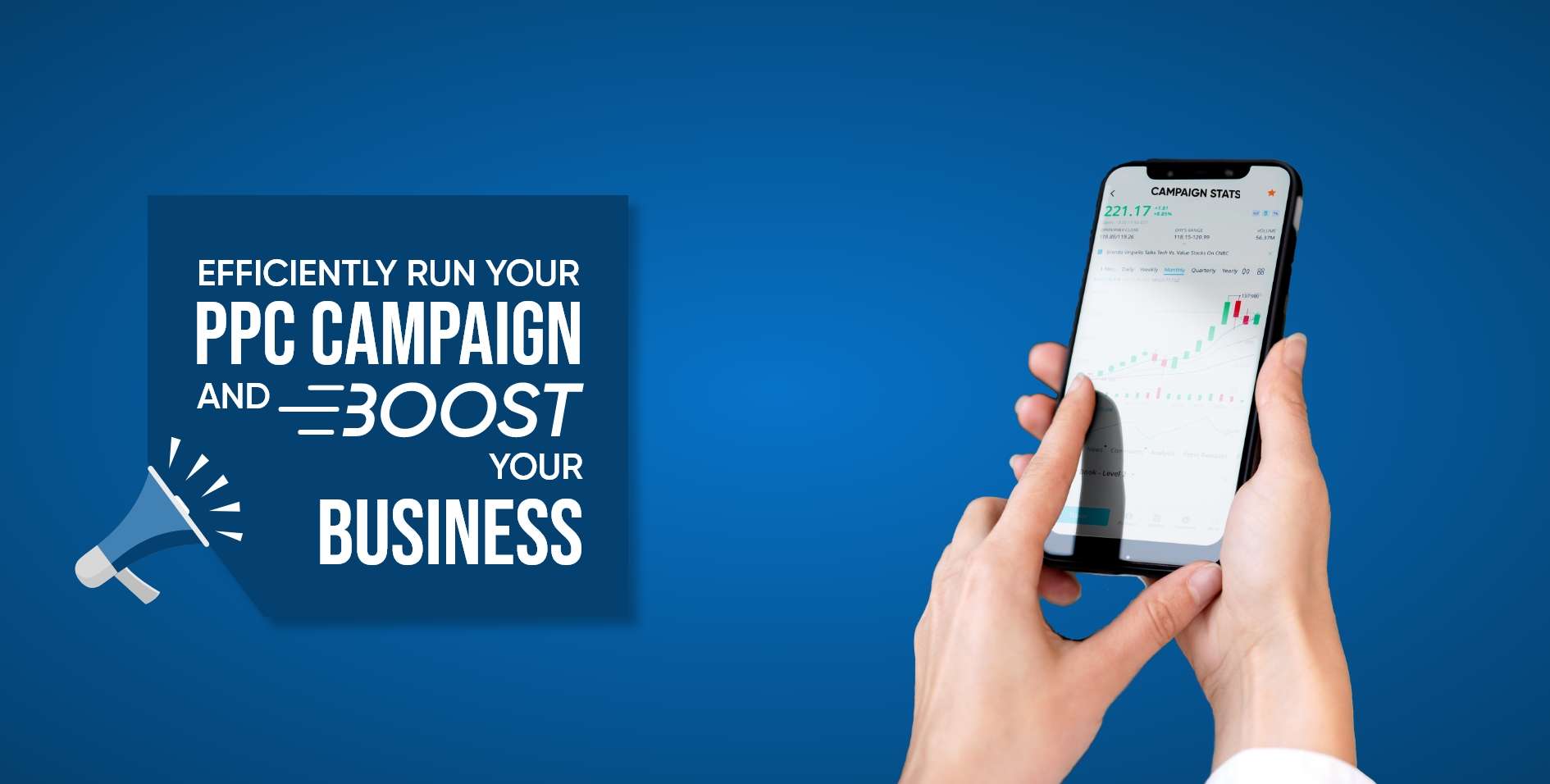
Do Your Competitor Research
Deeply evaluate your competitors’ strategies for small business online advertising and PPC campaigns. Dig deep and find what kind of keywords your competitors are using to grab the users’ attention. You should also check what strategies your competitor is not using.
Check for ad extensions as well, and include them in your PPC campaign whether other sellers are using them or not. If you are wondering why ad extensions are important, they offer additional data that enhances your ad by making it more relevant and interactive.
Incorporate Keywords
Running PPC ads requires more than spying on your competitor’s strategies. It is a step to start developing a well-coordinated ad strategy. Include smart keywords in your ad copies that can grab the audience’s attention.
Keywords are phrases that a user enters when searching for anything online. You need to find out these phrases and include them in your ad content. Look for the less expensive keywords, it will only blow your entire budget while offering unexpected results.
When running a campaign for a small business, go with hyper-specific long-tail keywords. Although you have the option to go with short tail keywords, yet again they are too expensive for you to afford.
Longer keywords tend to have less service volume while low cost per click as well. While they are highly relevant to your targeted audience. For instance, if you are running a sports store and your keyword will be men’s wooden cricket bat instead of a cricket bat.
Craft an Engaging Ad Copy
Whether you are running PPC for b2b or an established brand. It requires an informative, helpful, and engaging ad copy that compels users to take action. In simple words, ad copy is the text you mention on a particular ad when running a campaign.
Your ad copy serves as a powerful tool to connect with your audience, engage them, and increase your conversions. Include keywords when crafting the ad content and take care of the character limits as well.
Google has determined a specific word count for the copy title and description.
- Headline 1 (30 characters)
- Headline 2 (30 characters)
- Description (80 characters)
- URL/Path 1 (15 characters)
- URL/Path 2 (15 characters)
Follow the above character limit and include every single detail about your product/services. Suppose you are writing about a clothing brand, explain how this particular product can solve customer problems. It will give them a reason to take action and click on your ad.
Your content should have a short, precise title, a simple yet creative description, and a strong call to action. CTA (Call to action) tends to persuade a customer to make a purchase.
Landing Page Optimization
Pay-per-click for small businesses is an ideal tactic to increase brand awareness and boost revenue. While it requires an organized process for the marketing experts to follow. It is also known as pay per click optimization which includes finding keywords and doing competitor research, writing ad copy, and optimizing landing pages.
An optimized landing page loads fast and seems responsive, offering easy navigation to the audience. Moreover, a smooth user experience leads to conversion and sales. If you are not familiar with how to optimize your landing pages, here is what you should do
- A clear call to action
- Explain how your brand is different then others
- Make sure your website pages load faster
- Introduce offers on landing pages such as early discounts and schemes
Improve Quality Score
Google assigns scores to the ads based on their relevance, quality, and keywords. Your quality score along maximum ad bid determines your ad rankings in a bid auction. In simple words, you must know that the following can impact your ad score
- Relevancy of your keywords in their respective ad groups
- Click thru rate
- Landing page quality and its relevance
- Ad copy relevance
Add Negative Keywords
Small businesses should focus on including negative keywords in their ad campaigns. These ensure that your ad will not appear in a query that is not related to your product when a user performs any search.
Use Google Keyword Planner to find such keywords and compile a list. It will help prevent your ad from showing up in unwanted searches and save a huge amount. Suppose you are running a bakery selling cakes. Your negative keyword will be cake recipe as an individual searching for a cake recipe will not buy a cake from you.
Managing and Optimizing Your Campaigns
Campaign optimization is a process of tracking and improving your ad campaigns to accomplish desired results. In other words, you have to use numerous tools and implement techniques to check whether your campaign is driving results.
Here is how you can manage and optimize your campaigns

Align Your Objectives With The User Journey
Consider user preferences when developing your ad campaigns. In simple words, you need to align the purpose of your campaign with the audience journey. That further divided into 3 stages
- Awareness: the first stage of the user journey where he comes to know your brand for the first time. Target the awareness stage to generate high-quality leads.
- Consideration: in the consideration stage, your potential customer receives more information about your brand and starts making his decisions. Target this funnel to improve your brand credibility.
- Decision: the final stage where your customer converts into a lead and starts buying from your website.
Remember, that you need to craft different types of ad content for the customer of the above 3 stages. Knowing about every phase of the user journey will help you in precise targeting.
Use Appropriate Tools
Using the right tools accelerates the process of campaign optimization. For instance, using a centralized product catalog for all advertising efforts results in efficient inventory management. Moreover, it assists marketers in managing the traffic flow.
There are numerous tools available over the internet that can help you manage and optimize your ad campaign performance.
Track your ad campaign performance
Tracking your campaign progress is amongst the best ppc marketing practices. Therefore, carefully plan how you have to track down your campaigns. You can use numerous tools for this purpose such as Google Analytics.
This free Google tool helps you figure out the total number of visits to your website: bounce rate and traffic sources. Moreover, you can also monitor the data shared by every ad platform. For instance, it provides ad quality score reports on metrics, impressions, and CPC.
Case Studies and Success Stories
So far we have learned how PPC can turn your low-profit business into a money-making machine. Here are some case studies to boost your confidence.
1) Natural Nutrients Case Study
- Challenge: Low PPC performance
Natural Nutrients faced significant challenges with their PPC campaigns, struggling to convert clicks into sales and seeing little revenue growth. - Strategy: PPC Geeks implemented granular campaign extensions to target specific queries, created single keyword ad groups for higher relevance, performed ad copy A/B testing to find optimal messages, and focused on conversion rate optimization to improve landing page performance.
- Results: Achieved a 5,789% increase in revenue and a 3,197% return on ad spend (ROAS)
The revamped PPC strategy resulted in a dramatic 5,789% revenue increase and a 3,197% return on ad spend. For every dollar spent on PPC, Natural Nutrients earned $31.97, turning their low-performing campaigns into a major revenue driver
2) Adshark PPC Case Study
- Challenge: Low Return on Ad Spend (ROAS)
Adshark was struggling with low ROAS, indicating that their PPC campaigns were not generating sufficient revenue for the amount spent on ads. - Strategy: The team optimized ad targeting to better align with high-intent keywords, implemented dynamic remarketing to re-engage previous visitors, and refined ad copy to improve relevance and click-through rates.
- Results: Achieved a 32% increase in ROAS
Through these targeted optimizations, Adshark saw a 32% increase in ROAS, enhancing the profitability of their PPC campaigns. This improvement indicated a more efficient use of their advertising budget, yielding higher returns for each dollar spent.
3) Click Consult PPC Case Study
- Challenge: Low Return on Investment (ROI)
A UK clothing brand faced challenges with low ROI from their PPC campaigns, indicating inefficient ad spending and insufficient revenue generation. - Strategy: Click Consult refined ad targeting to focus on high-conversion demographics, utilized advanced bidding strategies to maximize budget efficiency, and conducted continuous A/B testing to optimize ad creatives and landing pages.
- Results: Achieved a 139% increase in ROI
Through these strategic optimizations, the UK clothing brand experienced a 139% increase in ROI, significantly improving the profitability of its PPC efforts. This increase demonstrated a more effective allocation of their advertising budget, resulting in higher returns for each pound spent.
Conclusion
PPC Marketing is an easy way for small businesses to compete against established brands and increase their ROI. However, without proper planning, your ad campaign may fail to drive results. Above we have explained how you can set up, optimize, and track your PPC ad campaign performance to generate your desired outcomes.
